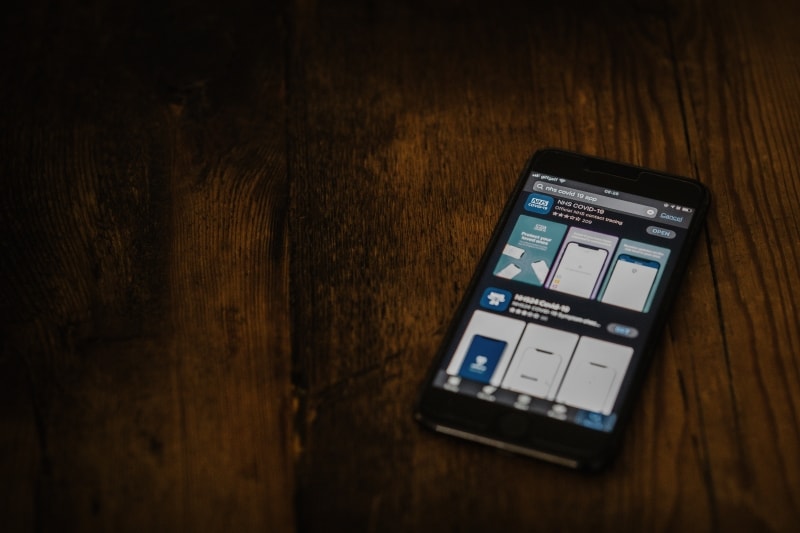Pingdemonium – Workers, Employers and the NHS COVID-19 App

Written by Sophie Firth.
What are workers’ and employers’ obligations?
Reg 2 of the Health Protection (Coronavirus, Restriction) (Self Isolation) (England) Regulations 2020 makes it a legal requirement for an individual to self-isolate where they are notified by NHS Test and Trace that they have tested positive or had close contact with someone who has tested positive. In broad terms for close contacts the self-isolation period is 10 days from the date of exposure.
A worker who is required to isolate in these circumstances is described as a self-isolating worker.
Under reg 8, there is an obligation on a self-isolating worker to tell their employer as soon as reasonably practicable and before they are due to work of their requirement to self-isolate and the dates of the isolation period. Failure to do so without reasonable excuse is a criminal offence under reg 11 punishable by a £50 fine.
Under reg 7, an employer of a self-isolating worker who is aware of a worker’s requirement to self-isolate must not knowingly allow that worker to attend the workplace during the isolation period for any purpose related to their employment. If an employer does so without reasonable excuse it commits a criminal offence under reg 11 punishable by a fine of up to £10,000 for repeat offenders, or prosecution.
However, reg 2 only “applies where an adult is notified, other than by means of the NHS Covid 19 smartphone app developed and operated by the Secretary of State”. Therefore, there is no legal obligation for an individual who has been pinged by the app to self-isolate – it is merely advice. Correspondingly, there is seemingly no legal obligation for a pinged worker to inform their employer they have been pinged, for their employer to knowingly allow them to come to work.
Nevertheless, pinged workers and their employers would be well advised to take the same steps as they would have been legally obliged to take had they been contacted directly by NHS Test and Trace. Plainly, attending work in such circumstances could jeopardise the health and safety of colleagues by spreading covid within the workplace and beyond.
If a worker who has chosen to download the app fails to notify their employer that they have been pinged or told by NHS Test and Trace to self-isolate, this may justify disciplinary sanctions. However, if employers wish to impose such sanctions, it would be sensible for them to write to their workers to inform them of that notification requirement, and the fact that failure to notify could carry a disciplinary sanction.
Employers should also be careful to ensure compliance with GDPR if they intend to ask workers to share health data (special category data).
The government’s response to the pingdemic
The government has decided that fully vaccinated workers in 16 critical sectors – including, for example, food production and supply and essential transport – may be exempt from self-isolation.
Additionally, the Department for Environmental, Food and Rural Affairs (Defra) has announced a new testing scheme for food industry workers allowing critical staff to avoid self-isolation if they test negative.
However, the exemption scheme is not a blanket exemption for all workers in a particular sector. In summary, only those workers whose absence would result in serious disruption to critical services qualify. If employers believe this applies to them, they need to write to the relevant government department making a request. If the criteria are met, then the relevant department will write to the employer setting out the named critical workers who qualify.
However, the exception scheme will only operate until 16 August 2021, when all fully vaccinated individuals will be able to avoid self-isolating if they are exposed to Covid 19.
Can employers insist that workers download and use the app?
Downloading and using the app is entirely voluntary, including for workers.
It may be reasonable for employers to require workers to have the app on a work phone and have contact tracing on whilst at work. However, this is unlikely to be of much assistance to employers. The government guidance for workers using the app states that contact tracing should be left on as much as possible, or the app will not work as intended. In practical terms, for workers, this would mean both inside and outside of work.
It is doubtful whether instructing workers to use the app at all times, especially on a personal phone, would be a reasonable management instruction, and may breach workers’ rights to a private life.
Can employers instruct workers to pause contact tracing or ignore a ping?
The pingdemic is not only affecting critical sectors. Staff in sectors from banking to bar work are reportedly being asked to deactivate the app whilst at work, owing to numerous workers being pinged and absent from work. Some employers are concerned that such notifications are inaccurate.
The government guidance for workers highlights four specific scenarios where workers are advised to pause contact tracing:
- When working behind a Perspex screen and fully protected from others.
- If they store their phone in a locker or communal area.
- If they work in health and social care and wear medical grade PPE.
- If they are a healthcare worker working in a healthcare building.
Therefore, in those circumstances, it is likely to be reasonable to instruct workers to pause contact tracing. If employers wish to do this, they would be well advised to give such an instruction in writing, and could advise that if it not followed there may be disciplinary consequences.
However, outside of those narrow circumstances, it would be risky for an employer to instruct workers to turn off contact tracing because of the possibility of inaccurate notifications and increased absence, or indeed to ignore a ping. This is not intended to be an exhaustive list, but some risks are:
- Discrimination claims from workers at increased risk from Covid 19 due to a protected characteristic.
- Health and safety related (constructive) automatic unfair dismissal under s100 ERA 1996 and detriment claims under s44 ERA 1996 from workers who complain about being told to turn off contact tracing or defy the employer’s instruction, report being pinged or refuse to come into the workplace and resign, or are dismissed or disciplined as a consequence.
- Whistleblowing and victimisation claims in similar circumstances.
- Concern amongst workers that they are putting themselves, colleagues and customers at risk, which may damage worker and, – if discovered by them – customer relations.
- Potential implications under health and safety legislation.
It is unlikely that it would ever be reasonable for an employer to instruct a worker to ignore a ping. The employer would have no way of knowing whether the worker had in fact been exposed to someone who had tested positive either inside or outside the workplace.
Conclusions
Whilst the self-isolation rules will change 16 August 2021, the considerations outlined in this article are still likely to be of relevance to workers and employers beyond that date, not least because some workers will not be fully vaccinated.
This article provides some thoughts the use of the NHS Covid 19 app in the workplace. It is not a substitute for legal advice, and should not be relied upon as such.
Sophie Firth is a member of Parklane Plowden’s specialist Employment team. To view Sophie’s profile in full, click here.










